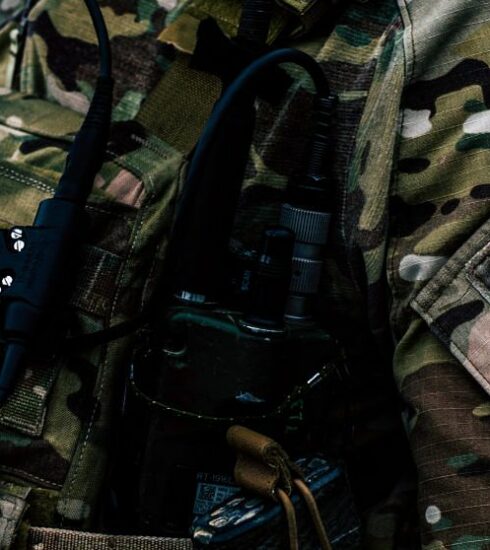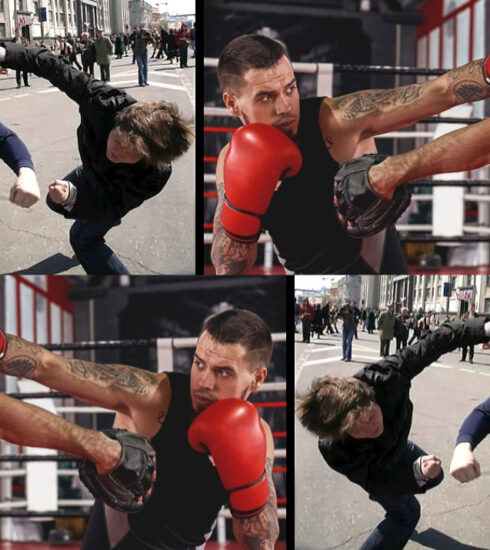The Canine Tactical System
Part best friend, part body guard, part sentry monitor and part brother-in-arms. Dogs have the potential to be the ultimate security integration.
If you own a dog, you have not only a loyal, personal friend but have also invested in one of the world’s most sophisticated security systems.
Dogs don’t rationalize. They don’t hold anything against a person. They don’t see the outside of a human but the inside of a human.-Cesar Millan
After occupancy, a dog is the biggest deterrent to any would be burglar, and as an early warning alert system is second to none. One of the main reasons a dog is so effective at security is that it cares about you – unlike an alarm or other piece of technology – and because of this it will work and give 110 percent to keep you safe.
However there are also many other reasons why dogs are so effective at ensuring our safety, and it is worth examining a few of these reasons / characteristics, so that we can adopt and emulate them.
I have always been a believer in learning from the best, and there are few better at threat detection, recognition and response than dogs.
Forgetting a dog’s superior sense of smell and hearing, dogs have one major personality trait that we once had many, many generations ago but have since lost, and that is curiosity – thousands of years ago when we weren’t able to take security for granted (due to constant threats from wild animals and other humans) we were a much more curious species (modern and relatively safe living has robbed us of this). If a dog hears a sound, it wants to know what that sound is; it’s curious about it.

Lacking reason, it doesn’t try and explain the sound away, but instead investigates the cause of the sound; and it’s not happy until it’s done so. Dogs are curious about their environment and don’t accept unknowns.
If I am walking down the street, and I hear footsteps behind me, I should be curious about them, and I should make a dynamic risk assessment concerning them – determining whether I am in a situation concerning a high risk (maybe footsteps running heavily towards me), or one containing an unknown risk I have yet to determine the significance of the footsteps.
There’s no such thing as a low risk situation, as to think like this would cause us to drop our guard.
We should be like a dog and not accept the unknown(s) but try and ascertain what the meaning behind the footsteps is, and any harm to us they may signify.
Dogs never discount threats simply because the last time they picked up on the same thing or something similar it didn’t end up being a threat or danger.
We tend to educate ourselves badly concerning our past experiences of potential danger.
The more times we hear footsteps behind us, make no response, and nothing bad happens to us, the more convinced we become that not making a response is the correct thing to do.
Dogs don’t do this, they’ll treat the same threat in the same way, over and over again, regardless of the end result, not because they’re stupid and unable to learn.
But because they understand that one time out of a million the movement they’ve identified may indicate a real danger, and they don’t want to endure the consequences of this. It pays to be curious, even when you think you are familiar with a situation / experience.
When a dog decides to attack, it does so decisively, with no doubts in its mind. It doesn’t question itself about acting, rather it understands that this is the only effective option left to it, and so it must act on it with full commitment.
Why do we fear being attacked by a dog? Because we know once it attacks it won’t stop, give up or be taken out of the fight. Unless they are mechanically unable to do so a dog will keep fighting. If a dog is conscious and can move it will carry on.
Could you say the same for yourself, or would the potential pain, and emotional stress cause you to give up? Dogs are totally, irrevocably committed to their cause, and are fearless – they act without regard for their own safety when they go to defend their owners / pack members.
How committed are you to defending yourself? You should be as committed as an attacking dog.
We can learn a lot from dogs in the tactical, survival and combative aspects of engagement. We can be more curious about our environment, we can keep responding to those things which grab our attention but result in no consequence, by continuing to recognize them as potential threats.
Be more committed, determined and decisive when we have to act. Don’t just rely on your dog, if you have one, but learn to be more like them.






